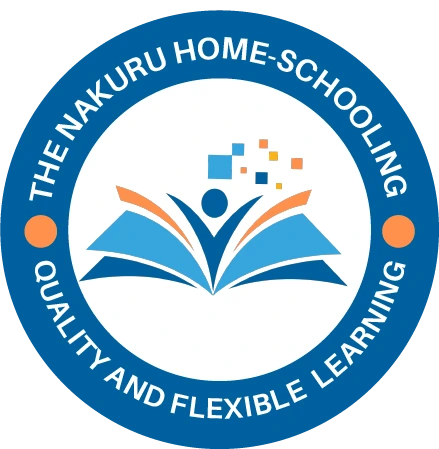Homeschooling has become a legal and increasingly popular educational choice in Kenya, offering families a tailored, flexible learning experience for their children. There are two primary approaches to homeschooling in Kenya:
Parent-Led Homeschooling: In this approach, parents or guardians take on full responsibility for their child’s education, including teaching, record keeping, and lesson planning.
Organization-Based Homeschooling: Here, parents entrust homeschooling responsibilities to a professional company or organization. These organizations handle the teaching, curriculum planning, and record-keeping, providing parents with regular updates—often weekly or biweekly—on their child’s progress.
Nakuru Homeschooling offers some of the best homeschooling services in Kenya, providing families with a reliable and structured approach to homeschooling. Our experienced team manages all aspects of the educational process, from lesson planning and curriculum selection to ongoing assessments and progress tracking. Whether following the Kenyan National Curriculum, British Curriculum, or International Baccalaureate, Nakuru Homeschooling tailors each program to meet the specific needs of every learner, ensuring a quality educational experience that parents can trust.
This guide will delve into everything you need to know about homeschooling in Kenya, covering key topics such as registration, curriculum options, costs, benefits, and potential challenges.
Is Homeschooling Legal in Kenya?
Yes, homeschooling is legal in Kenya. Parents are allowed to choose non-traditional educational methods, as long as they meet certain legal standards and educational requirements. This flexibility has made homeschooling a practical choice for families seeking tailored education.
Key Considerations for Homeschooling in Kenya
1. Registration Requirements
Parents must register their children with an examination body to ensure their academic qualifications are recognized. Common choices include the Kenya National Examinations Council (KNEC) for local exams or international bodies such as Cambridge and Pearson Edexcel. Additionally, parents may need to register with local education authorities, depending on their chosen curriculum and examination pathway.
2. Choosing a Homeschool Curriculum in Kenya
Selecting the right curriculum is a vital step in homeschooling. Parents typically begin by researching both Kenyan and international curricula. Popular options include:
- Kenyan National Curriculum: A good choice for those aiming to take the KCPE and KCSE exams, as it aligns with the country’s educational standards.
- International British Curriculum and Edexcel: Both options offer globally recognized qualifications and the flexibility to study abroad if desired.
Parents also choose between traditional homeschooling (where they directly teach their children) and online schooling (where lessons are taught by virtual instructors). Programs like CambriLearn provide a complete online curriculum aligned with international standards, making it easy for students to transition to higher education. When selecting a curriculum, factors like the child’s learning style, family values, and long-term academic goals should be considered. Joining support groups like the East Africa Christian Home-educators (EACH) can also provide insights and curriculum advice.
3. Record Keeping
Parents are responsible for maintaining accurate records of their child’s educational activities, progress, and achievements. Keeping a record of daily lessons, grades, and milestones is crucial, particularly for children planning to take standardized tests or move into formal schooling at any point.
4. Exams and Assessment
Homeschooled students in Kenya have the option to register for both national and international exams:
- National Exams: Registering with KNEC allows students to take national exams such as KCPE and KCSE.
- International Exams: Families following the Cambridge or Edexcel curricula often register their children for the IGCSE exams, which are held at certified centers in Kenya. Exam fees can vary by center, so it’s important to factor in these costs.
5. Socialization Opportunities
Socialization is an essential aspect of homeschooling. Parents can form or join co-ops where children can socialize through field trips, sports, arts and crafts, and group learning activities. Organizations like EACH organize regular gatherings and provide valuable networking for both children and parents.
6. Support Networks for Parents
Kenya has a growing network of homeschooling communities. These groups share resources, advice, and support, helping families address common challenges and find curriculum solutions.
Benefits of Homeschooling in Kenya
Personalized Learning
Homeschooling enables students to learn at their own pace and focus on their unique strengths and interests, leading to a more effective and engaging education.
Flexibility in Curriculum
With homeschooling, families can choose from a range of curricula, allowing for the integration of both local and international content that suits the child’s educational goals.
Stronger Family Bonds
Homeschooling fosters close family relationships, as parents are directly involved in their child’s learning, providing a supportive and collaborative environment.
Focus on Practical Skills
Homeschooling allows parents to include practical life skills such as financial literacy, coding, and entrepreneurship, preparing students for the real world.
Adaptable Schedule
Homeschooling offers a flexible schedule, allowing families to plan lessons around holidays, family activities, and other commitments.
Safe Learning Environment
Learning from home can be safer for children, offering an environment free from issues like bullying and peer pressure commonly found in traditional schools.
Customized Socialization
Through co-ops and group activities, parents can curate their children’s social interactions, ensuring they develop healthy relationships and social skills in a positive setting.
Homeschooling Costs in Kenya
Homeschooling Costs in Kenya
The cost of homeschooling in Kenya varies widely depending on the chosen curriculum, required resources, and examination fees. Here’s a breakdown of typical costs:
Primary Level
- Annual Fees: $800 to $1,500 for three subjects
- Textbooks: $100 to $150
- Note: No additional exam fees are required at this stage.
Secondary Level (Lower and Upper Secondary)
- Annual Fees: $1,800 to $4,550 for six to seven subjects
- Textbooks: $400 to $600
International GCSE
- Annual Fees: $4,500 to $6,500 for six subjects
- Textbooks: $300 to $400
- Exam Fees: $1,000 to $2,000, depending on the center
AS Level
- Annual Fees: $3,500 to $5,500 for four subjects
- Textbooks: $400 to $500
- Exam Fees: $1,000 to $2,000
Costs can vary based on the number of subjects, digital versus printed textbooks, and exam center locations.
Challenges of Homeschooling in Kenya (and Solutions)
High Costs
Tuition, textbooks, and exam fees can be costly, especially for international curricula.
Solution: Families can offset costs by selecting digital textbooks, buying second-hand materials, or joining co-ops that share resources.
Access to Socialization Opportunities
Homeschooling limits daily peer interactions.
Solution: Parents can organize playdates, field trips, and join homeschool groups to ensure children develop strong social skills.
Limited Access to Qualified Teachers
Parents may struggle with subjects they are less familiar with.
Solution: Online platforms like CambriLearn provide virtual tutors, and hiring part-time tutors can also help fill gaps in certain subjects.
Time Commitment
Homeschooling requires a significant time investment from parents, particularly in direct teaching.
Solution: Creating a structured schedule and using online resources can reduce the daily workload. Older students can also engage in self-directed learning.
Balancing Family and Education Roles
Parents may find it challenging to switch between being a parent and a teacher.
Solution: Setting a clear daily routine and designating specific times for “school” and family activities helps create a balanced structure.
Final Thoughts
Homeschooling in Kenya is a flexible and rewarding educational option that provides families with control over their child’s learning experience. With the right curriculum and support network, parents can provide an enriching education that meets their child’s needs. While challenges like costs, socialization, and time commitment exist, these can be managed with careful planning, community support, and the use of online learning platforms.


